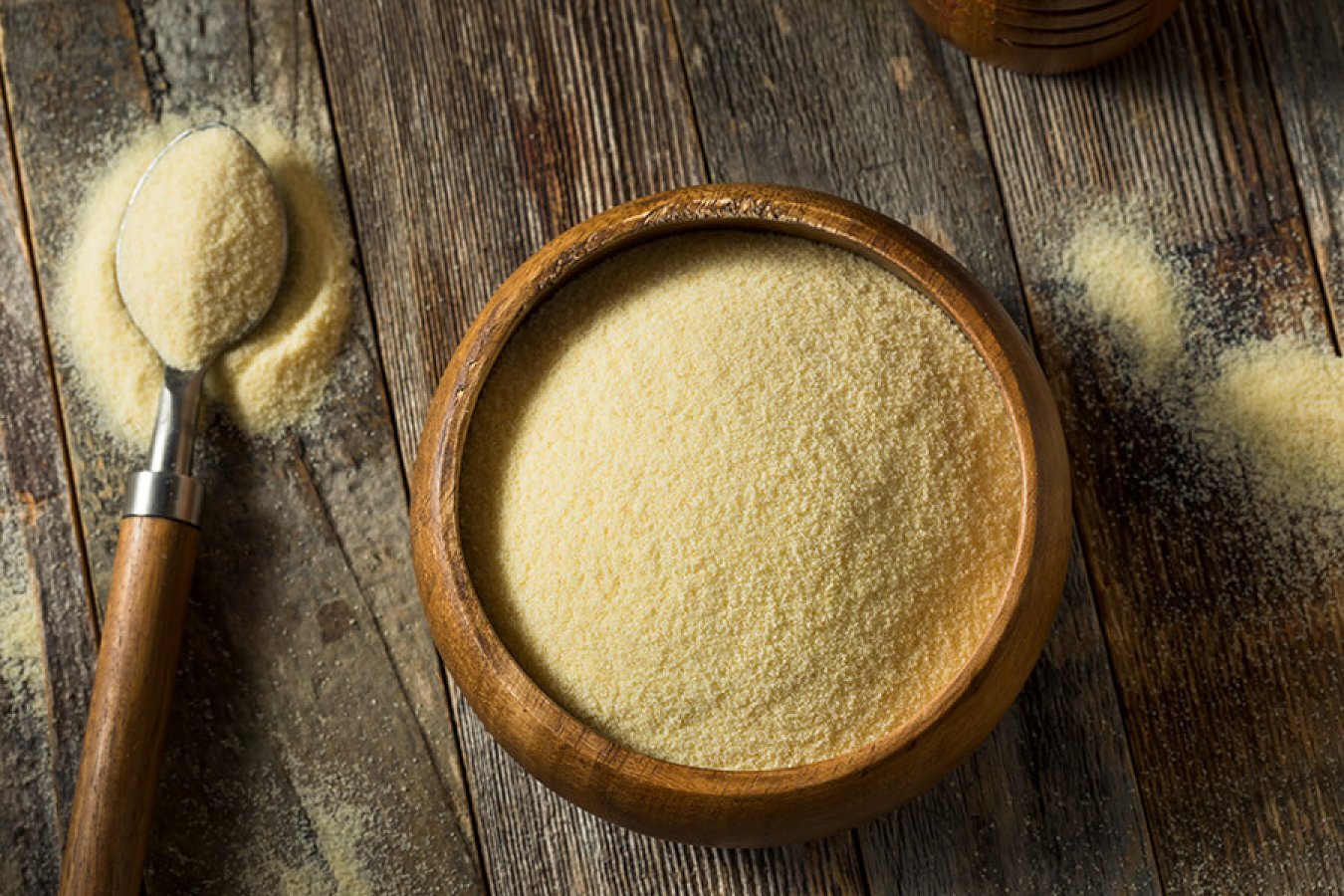Gelatin
Bovine gelatin is a food additive produced by processing
collagen, a natural protein typically obtained from bovine skin, bones, and
connective tissues. This substance is widely used in the food industry,
particularly for its gel-forming, thickening, stabilizing, and binding
properties.
Characteristics of Bovine Gelatin:
Chemical Structure: Bovine gelatin has a protein structure rich in collagen. It
is obtained through the hydrolysis of collagen and is an entirely natural
product.
Gelatinization: When mixed with hot water, gelatin dissolves and forms a gel as
it cools. This property allows it to create firm, elastic, or soft gels when
added to food products.
Solubility in Water: Gelatin does not dissolve in cold water but becomes
soluble when heated. Once dissolved, it forms a viscous solution and gels upon
cooling.
Usage in the Food Industry:
As a Gelling Agent: Bovine gelatin is used as a gelling agent in products
like puddings, jellies, and candies (such as marshmallows and soft gummies).
By combining with water, it forms a gel, giving the products the desired
texture and structure.
As a Thickener: It is used as a thickener in yogurt, ice cream, cream, and
certain sauces. It gives liquids a denser and creamier consistency. Gelatin’s
thickening property also helps delay melting in products like ice cream.
As a Binding Agent: In meat products such as meatballs, nuggets, and
sausages, bovine gelatin functions as a binder, holding the ingredients
together. It is also used in plant-based meat alternatives.
As a Stabilizer: Gelatin acts as a stabilizer in dairy products, pastry
creams, and various desserts. It helps preserve the structure of foods and
prevents the separation of components.
As a Clarifying Agent: Gelatin is used as a clarifying agent in beverages
like wine and fruit juices. The proteins in gelatin bind to particles that
cause cloudiness in drinks, helping them settle and making the beverages clear.
In Low-Calorie Products: Gelatin is often used in low-calorie or diet foods
due to its role as a calorie-free protein source. It serves as a gelling agent
in calorie-free jellies and desserts.
Encapsulation: Gelatin is also used in pharmaceuticals and dietary
supplements as a capsule material. Gelatin capsules protect the
contents, such as vitamins and fish oils, while making them easy to consume.
Products That Use Bovine Gelatin:
Confectionery: It is used as a gelling agent in marshmallows, Turkish
delight, gummies, and other soft candy products.
Desserts: Gelatin is used to thicken and gel products such as pudding, mousse,
panna cotta, and jelly.
Dairy Products: Gelatin functions as a thickener and stabilizer in products
like ice cream, yogurt, and cheese.
Beverages: It is used to clarify beverages like wine and fruit juices.
Dietary Supplements: Gelatin-based capsules are commonly used in many vitamins
and supplements.
Advantages:
Natural: Bovine gelatin is entirely natural and serves as an alternative to
artificial additives.
Versatile Use: Gelatin has a wide range of applications, both in food products
and in pharmaceutical and cosmetic industries.
Protein Source: It is rich in protein and is considered a low-calorie protein
source.
Conclusion:
Bovine gelatin is a natural and versatile additive with extensive use in
the food industry. Its gel-forming, thickening, binding, and stabilizing
functions play a critical role in many products, from desserts to meat
products, and from confectionery to dairy products.

